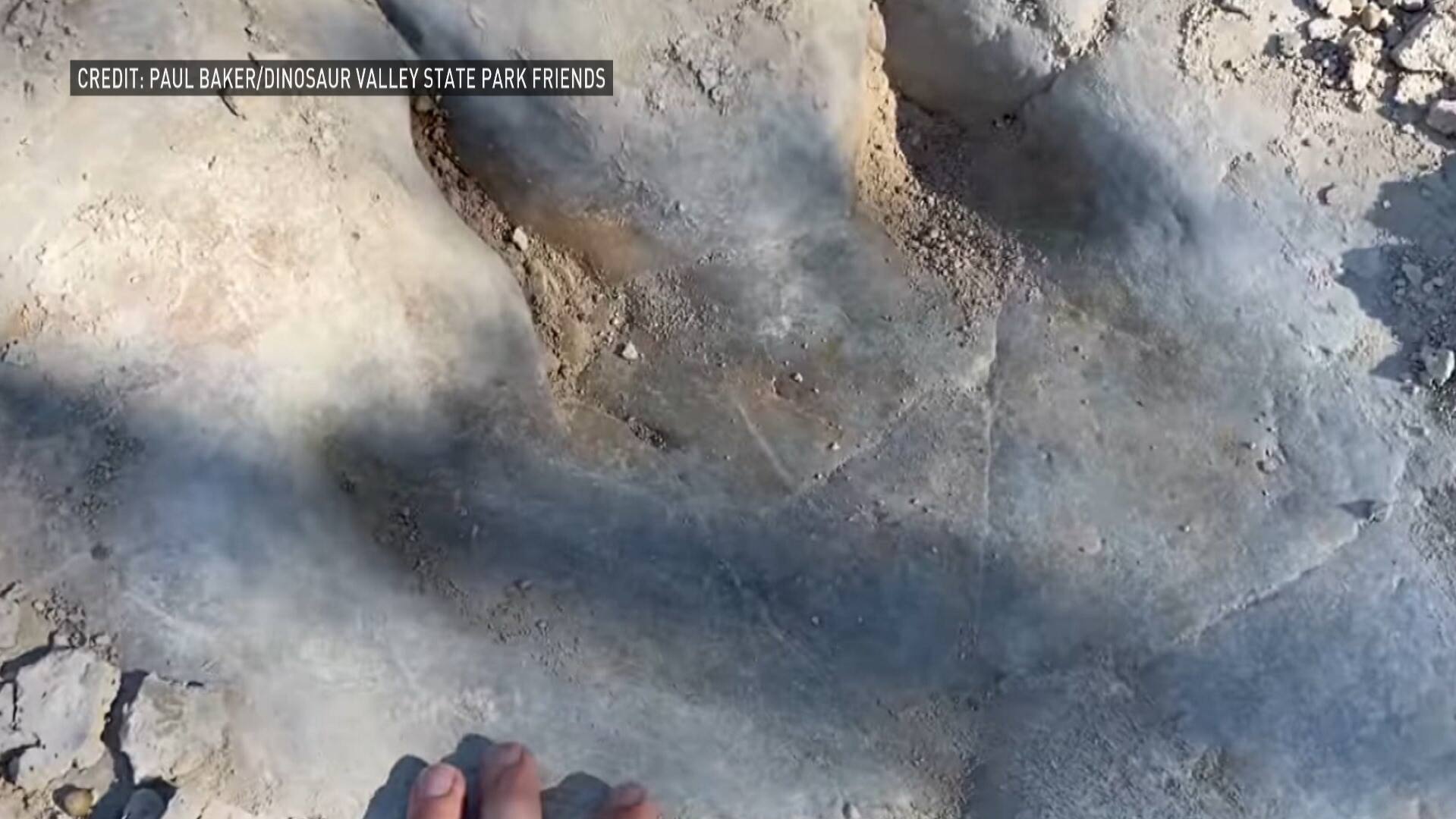113-million-year-old dinosaur tracks revealed by Texas drought, but they’ll soon vanish again | CBC News
Severe drought in Texas has offered a rare sighting of some ancient dinosaur tracks preserved in stone about 113 million years ago, but they’ll soon vanish again.
The deep footprints, complete with long claw marks, are preserved in a river bed that runs through Dinosaur Valley State Park, about 140 kilometres southwest of Dallas.
The long-hidden footprints along what’s now the bed of the Paluxy River are of a carnivorous dinosaur Acrocanthosaurus, which stood about four metres tall and weighed about six tonnes.
Park superintendent Jeff Davis says months of searing, dry weather have dried up more of the Paluxy River than usual.
“That’s exposed tracks that are very rarely seen,” said Davis. “They’re typically covered in deep water, gravel and sandbars.”
WATCH | Texas drought reveals dinosaur tracks along the Paluxy River:
A summer of drought has dried up large parts of the Paluxy River in Texas, leading to the discovery of triangle-shaped tracks made by dinosaurs millions of years ago in the aptly named Dinosaur Valley State Park.
He says the three-toed tracks of the what park staff call the “Acro” were made by a two-legged carnivore with a similar body shape to the Tyrannosaurus Rex.
“But it’s quite a bit older than the T-Rex,” said Davis.
Following in his father’s footsteps
The rare footprint sighting excited dinosaur enthusiasts and elated Paul Baker, who grew up in the park trailing along behind his dad, a ranger there for three decades.
“To see those claw marks, I don’t care how old you are, is exciting,” said Baker.
“And I can remember going along the river with my father and feeling for those tracks along the riverbed… feeling those claw marks underneath the water and seeing them.”
“And it’s a neat feeling, especially when you’re a young kid.”
About 20 years before he died, Baker’s father was the first to find the dinosaur footprints, revealed during a different drought. The site was named in his honour, and was revealed again by the recent drought.

“They are under mud and water most of the time. Only during extreme drought are some visible,” said Baker, who is the manager of the Dinosaur Valley Park Store and volunteers at the Glen Rose, Texas park.
He and other volunteers help clean up the tracks with whisk brooms and leaf blowers so visitors can see them.
Other species that left tracks behind at the park include the Sauroposeidon, a herbivore that stood about 18 metres tall and weighed about 39 tonnes. The Sauroposeidon is a type of sauropod dinosaur, whose tracks are large and elephant-like.
Davis says the Acrocanthosaurus may have fed on the Sauroposeidon‘s young or injured. The prints were made when the area was a shallow inland sea during the Cretaceous period, long before it was rolling prairies in central Texas.
Davis said by Wednesday, rains had already began to fill in the ancient tracks, and will soon hide the secret treasures of the park once again in the mud and silt of the river.

For all the latest Technology News Click Here


